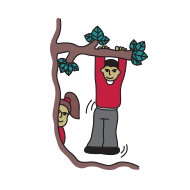Religious Education
At Hoath Primary School we believe that it is important for all our pupils to learn from and about religion, so that they can understand the world around them. The aim of Religious Education in our school is:-
- To help children to acquire and develop knowledge and understanding of Christianity and the other principal religions represented in Great Britain.
- Develop their understanding and awareness of the beliefs, values and traditions of other individuals, societies, communities and cultures.
- Develop the ability to make reasoned and informed judgements about religious and moral issues and enhance their spiritual, moral, social and cultural development.
We use the Kent Agreed Syllabus for Religious Education (2017-2022) as the basis for our curriculum.
- We explore the “big questions” about life and find out what other people believe and what difference this makes to how they live. Pupils can then begin to make sense of religion and reflect on their own ideas and ways of living.
- We encourage our pupils to ask questions about the world, and to reflect on and voice their own beliefs, values and experiences. It is essential that RE enables pupils to confidently share their own viewpoints without embarrassment or ridicule.
- A sequential curriculum which allow pupils to gain deep knowledge of Religious Education over time allowing progression and mastery.
- Opportunity for class and assembly discussions which enable pupils to express their own views.
- Many children in Kent come from religious backgrounds but others have no attachment to religious beliefs and practices. The RE curriculum is broad and balanced to reflect this. Christianity and other principal religions represented in Great Britain (Buddhism, Hinduism, Islam, Judaism and Sikhism along with Humanism) are studied across the key stages. Children also study how religions relate to each other, recognising both similarities and differences within and between religions.
- Our Religious Education curriculum is enhanced further, where possible, with trips to places of worship in our local area and visits from religious speakers.
